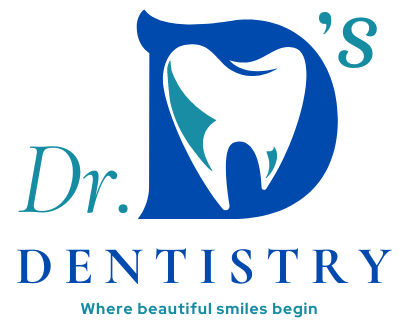Pregnancy brings numerous changes to your body, and while many women focus on their overall health during this time, oral health is sometimes overlooked. Dental care Safely during pregnancy is not only safe but also essential for both the mother and baby’s well-being. The hormonal changes that occur during pregnancy can make your teeth and gums more vulnerable to problems like cavities and gum disease. In this guide, we’ll provide tips on how to safely navigate dental care while expecting.
The Importance of Dental Safely Care During Pregnancy
Oral health plays a key role in maintaining overall health during pregnancy. Neglecting dental care can increase the risk of complications such as gum disease, tooth decay, and infections, all of which may impact the health of the mother and baby. For example, untreated gum disease has been linked to premature birth and low birth weight. By staying proactive about your dental care Safely, you’re taking an important step in protecting your pregnancy.
Is Dental Treatment Safe During Pregnancy?
Yes, most dental Safely treatments are safe during pregnancy, and in many cases, it’s riskier to postpone treatment than to receive it. Dentists take special care to ensure that procedures are safe for pregnant patients. Here’s a breakdown of what is generally safe during different stages of pregnancy:
- First Trimester: This is a critical period of fetal development, so non-urgent procedures are usually postponed. However, routine exams and cleanings are still recommended.
- Second Trimester: This is considered the safest time for dental treatments like fillings, crowns, and other minor procedures. The baby’s development is more stable during this time, and you’ll likely be more comfortable than in the third trimester.
- Third Trimester: Non-emergency treatments are often avoided due to the discomfort of lying back in a dental chair for extended periods. However, necessary treatments can still be performed with care.
Common Dental Issues During Pregnancy
Pregnancy hormones can increase the risk of certain oral health issues. Here are some of the most common dental Safely concerns pregnant women face:
1. Pregnancy Gingivitis
Hormonal changes during pregnancy can cause inflammation of the gums, known as pregnancy gingivitis. You may notice swelling, tenderness, and bleeding when brushing or flossing. If left untreated, this condition can progress into more severe gum disease.
How to manage it:
- Brush your teeth twice daily with fluoride toothpaste.
- Floss daily to remove plaque.
- Use an antimicrobial mouthwash if recommended by your dentist.
- Schedule regular cleanings to keep gum disease in check.
2. Cavities and Tooth Decay
Pregnancy cravings and increased snacking can raise the risk of tooth decay. Additionally, morning sickness and vomiting expose your teeth to stomach acids, which can erode enamel and increase the likelihood of cavities.
How to manage it:
- Rinse your mouth with water or a baking soda solution after vomiting to neutralize stomach acids.
- Brush after meals and snacks, especially if you’ve eaten sugary foods.
- Drink plenty of water to stay hydrated and promote saliva production, which helps protect your teeth.
3. Pregnancy Tumors
Some women develop benign growths on their gums called pregnancy tumors. These are not cancerous and often appear due to increased inflammation and plaque buildup. They usually disappear after childbirth, but if they cause discomfort, your dentist can recommend appropriate treatment.
How to manage it:
- Maintain good oral hygiene to reduce inflammation.
- Visit your dentist if the growth becomes painful or interferes with daily activities.
Dental X-Rays During Pregnancy: Are They Safe?
Dental X-rays are generally safe during pregnancy, especially when necessary for diagnosis or treatment. Modern digital X-rays use very low levels of radiation, and your dentist will take precautions by using protective shields like a lead apron to minimize exposure to you and your baby. If the X-ray is not urgent, your dentist may postpone it until after your pregnancy. However, in emergency situations, it’s often safer to have the X-ray than to delay important treatment.
Tips for Navigating Dental Care Safely While Pregnant
Follow these tips to ensure you maintain good oral health and navigate dental care safely during pregnancy:
1. Communicate with Your Dentist
Always inform your dentist that you are pregnant, as well as your stage of pregnancy. This will help them determine the safest and most appropriate treatments for you. Your dentist and OB-GYN can work together to ensure that any necessary treatments are both safe and beneficial for your pregnancy.
2. Maintain Your Regular Dental Safely Routine
Staying consistent with your oral hygiene routine is one of the best ways to protect your teeth and gums during pregnancy. Continue to brush twice a day, floss daily, and use fluoride toothpaste to help prevent cavities. If your gums are more sensitive than usual, try using a soft-bristled toothbrush to avoid irritation.
3. Watch Your Diet
Pregnancy cravings are common, but it’s important to be mindful of what you eat to protect your teeth. Try to limit sugary snacks and choose healthier options like fresh fruits, vegetables, and dairy products. Calcium-rich foods, in particular, support strong teeth and bones.
4. Schedule Regular Checkups
Routine dental Safely checkups are crucial during pregnancy. Not only will your dentist be able to monitor your oral health, but they can also provide professional cleanings to reduce plaque buildup and prevent gum disease. These visits help catch any potential problems early and keep your mouth healthy throughout pregnancy.
5. Stay Hydrated
Drinking water frequently helps wash away food particles, prevents dry mouth, and stimulates saliva production, which plays a key role in protecting your teeth. Staying hydrated is also important for your overall health during pregnancy.
6. Don’t Delay Necessary Treatments
If you experience dental Safely pain, infection, or other issues, don’t hesitate to seek treatment. Delaying necessary dental care can result in more severe problems, such as infections that could affect both you and your baby. Dentists are trained to provide safe treatment during pregnancy, so it’s best to address any concerns as soon as possible.
When to See a Dentist Immediately
Certain dental Safely issues require prompt attention to prevent complications. If you experience any of the following symptoms, contact your dentist right away:
- Severe tooth pain or sensitivity
- Swollen or bleeding gums that don’t improve with good oral hygiene
- A loose or broken tooth
- Signs of an infection, such as swelling or pus around a tooth
- Any injury to your mouth or teeth
In such cases, your dentist will work with you to provide safe and effective treatment that protects both your oral health and your pregnancy.
Conclusion: Prioritizing Dental Care for a Healthy Pregnancy
Pregnancy is a unique time that requires special attention to your oral health. By maintaining good dental hygiene, scheduling regular checkups, and addressing issues as they arise, you can keep your teeth and gums healthy while also supporting a healthy pregnancy. Don’t hesitate to seek dental Safely care when necessary, and always inform your dentist of your pregnancy to ensure you receive the safest treatments. Taking care of your smile during pregnancy is an important part of taking care of yourself and your baby.
Additional Resources for Expecting Mothers
Navigating dental care Safely during pregnancy can be challenging, but there are plenty of resources available to help you stay informed and empowered. Here are some organizations and materials that offer valuable information on oral health during pregnancy:
- American Dental Association (ADA)
The ADA provides comprehensive resources for pregnant women regarding oral health, including tips for maintaining good hygiene, the importance of regular dental visits, and safe treatments. Their website features articles specifically tailored to dental care Safely during pregnancy. - American Pregnancy Association (APA)
The APA offers information on various aspects of pregnancy, including oral health. They emphasize the connection between dental health Safely and overall wellness during pregnancy, providing useful guidelines for expecting mothers. - Centers for Disease Control and Prevention (CDC)
The CDC has a wealth of information on health during pregnancy, including the importance of dental care Safely. Their guidelines highlight the effects of poor oral health on pregnancy outcomes and offer preventive strategies for expecting mothers. - Your Local Dental Association
Many local and state dental Safely associations provide resources and support for pregnant women. Check their websites for information on local dental health initiatives, community programs, and available services for pregnant women.
Talking to Your Healthcare Providers
Open communication with your healthcare providers is crucial during pregnancy. Here’s how you can effectively engage with your dentist and obstetrician:
- Discuss Your Concerns: Bring up any dental concerns during your prenatal appointments. Your obstetrician can provide advice and refer you to a dentist if needed.
- Share Medical History: Ensure your dentist knows your complete medical history, including any medications you are taking and any pregnancy-related concerns. This information will help them tailor their treatments accordingly.
- Ask Questions: Don’t hesitate to ask your dentist questions about the safety of specific procedures, medications, or treatments during pregnancy. It’s important to feel confident and informed about the care you receive.
Summary
Taking care of your dental health during pregnancy is an essential aspect of ensuring both your well-being and that of your baby. By prioritizing oral hygiene, seeking regular dental care, and addressing any issues promptly, you can minimize risks and maintain a healthy smile throughout your pregnancy.
Remember that dental care is not only safe during pregnancy, but it is also critical for your overall health. Engage with your healthcare providers, utilize available resources, and stay proactive about your dental care to enjoy a healthy pregnancy journey. A healthy mouth contributes to a healthy body, so make your oral health a priority during this special time.


